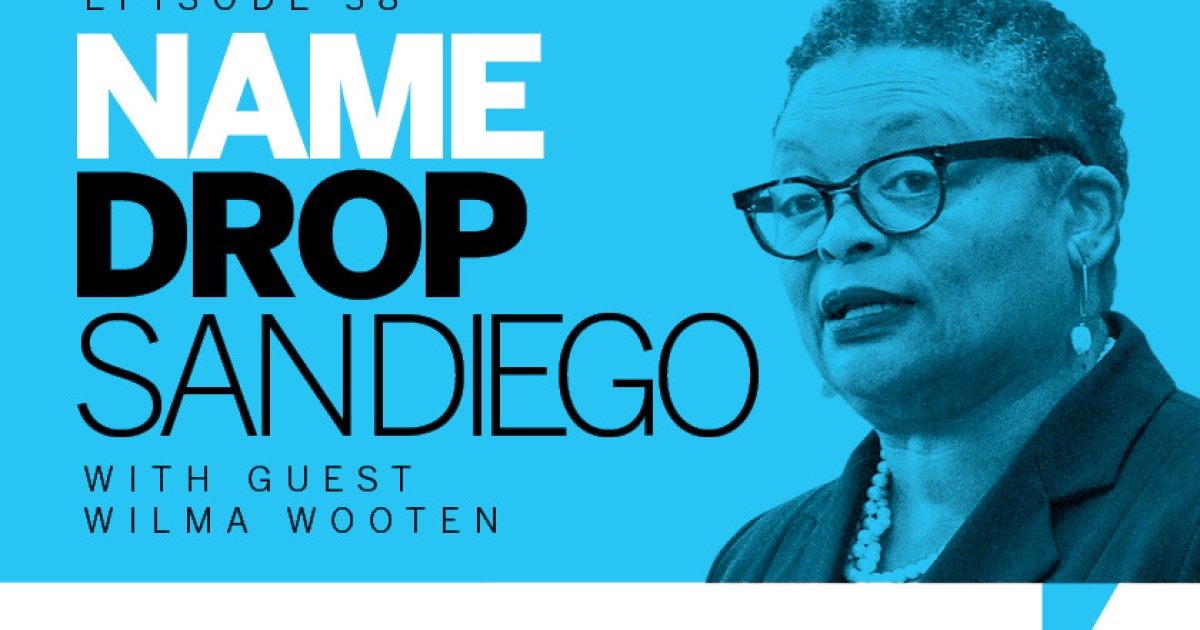Public Health Officer Wilma Wooten may be the most well-known doctor in San Diego County after 11 months of pandemic-related health orders, news conferences, public meetings and interviews where she has led — and tried over and over again to explain to anyone who will listen — the local response to a crisis unlike any other in a century.
Reactions to her announcements on everything from the closing and reopening and closing and reopening again of outdoor dining to pleas to wear masks have drawn praise and appreciation from residents, scientists and the health care community — and name calling, harassment and threats from critics. We wanted to ask her how and why she’s managed to do a difficult job so well every day, with no end in sight to the sickness and death associated with the COVID-19 pandemic despite a massive vaccine rollout and the state’s most recent reopening order.
There’s a lot more to Wilma Wooten than you’ve seen in those daily news conferences. Did you know that Wooten has held her job since 2007? Or that in late January she helped introduce a new countywide initiative to improve health outcomes for Black mothers and their babies? That she listens to reggae on her drives into work? And that she watches “Bridgerton” to unwind from what is one of the most demanding jobs in San Diego at the moment?
Read excerpts of the interview below or listen to the full conversation in the podcast player above.
On what she learned from her great grandparents who raised her in rural Alabama:
They had a fifth and sixth grade education and they just focused on education, but they also focused and instilled values of protecting and taking care of your community. My brother and I would, once a month, clean the house for a local elderly couple that lived just walking distance from us but we would go there every month to help them do things around the house. And that was something that has really stayed with me in terms of taking care of elderly in your community. An example of that for the pandemic, to show the connection, is that our elderly are the most vulnerable in terms of being exposed to and suffering from complications associated with COVID-19. That’s the case for influenza as well so making sure that those most vulnerable elderly populations are cared for is just really important.
On what her typical work day looks like:
I wish I could show you a screenshot of my schedule, but it’s back-to-back meetings every day. Before COVID-19, it was face-to-face meetings, now it’s Zoom meetings, but it is back-to-back meetings. Meetings over lunch. I have national meetings, I have state meetings, and then there’s a myriad of local meetings. So it’s a lot of meetings. Some are addressing issues and problems. Many are standard meetings focusing on our testing, planning or vaccination planning. Other meetings could be HR meetings. So it’s just a myriad. And then there are things that are not COVID-related, like we have an opioid grant, a four-year grant, and we’re in year two of that now, so focusing on those strategies and activities. So much of the standard activities that we were working on before COVID are creeping back in. So now we are COVID issues and non-COVID issues.
On how she takes care of herself during the pandemic:
When I’m in the throes of a task, I focus on the task, and I feel you can endure anything for a given point of time as long as there’s light at the end of the tunnel. Obviously because we can’t travel, I’m not traveling. Vacation for me is very important and I stressed that previously that I would send out to staff. But we can’t travel, so just catching up on my sleep on the weekends, or any days that I have off we try to just recoup that way. But really, the focus is on getting the job done. And I also commonly tell my colleagues failure is not an option, so we do what we need to do to get things done.
On sticking with the job when others across the country have left it:
Because it’s the right thing to do. It’s the right thing to do. That’s all I can say. This is what I signed… well I don’t necessarily know that I signed on for this very moment but we knew it was a possibility, in our day and time, to be exposed to pandemics. Pretty much most of the years I’ve been a health officer there’s been some type of public health crisis or threat. So it’s expected with the job and it’s just important to stay the course and let science drive decisions that are made. For me, because I’m not the politician, but I stay the course and focus on science- and evidence-based practices.

